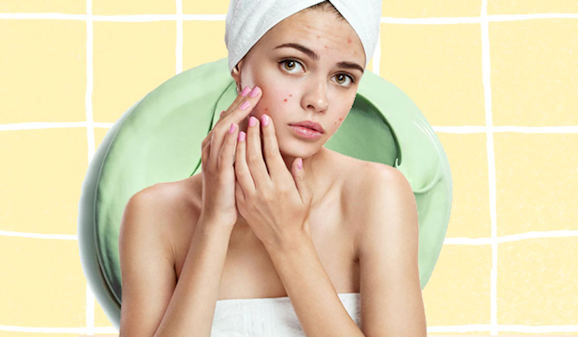Various research studies have shown that acne affects millions of people across the world of all ages, making it one of the most common skin conditions. Acne-prone skin can be frustrating, but with the proper skincare routine and lifestyle changes, it is possible to achieve clear, healthy skin. Let's discuss some of the best tips for skin care for acne-prone skin.
Cleanse Gently but Thoroughly
One of the most critical steps in any skincare routine is cleansing. For acne-prone skin, a gentle cleanser that eliminates grime, oil, and makeup without depleting the skin of its natural oils is vital. Harsh, abrasive cleaners can irritate the skin and make acne worse. Look for a gentle, non-comedogenic (non-pore-clogging) cleaner that is suitable for sensitive skin.
Exfoliate Regularly, but Avoid Over-Exfoliation
Exfoliation is vital in any skincare routine since it aids in the removal of dead skin cells and the unclogging of pores. However, it is critical to avoid over-exfoliating, as this can irritate the skin and make acne worse. Look for a gentle exfoliator containing salicylic acid or alpha-hydroxy acids (AHAs), which can help unclog pores and improve the skin's texture.
Moisturize Daily
Many people with acne-prone skin believe they should avoid moisturizing, as they think it will make their skin oily and lead to more breakouts. However, this is a myth. Moisturizing is an important part of any skincare routine since it keeps the skin hydrated and healthy. Look for a light, oil-free moisturizer that is suitable for acne-prone skin.
Use Sunscreen Every Day
Sun exposure can make acne worse and lead to dark spots and scarring. Using sunscreen daily is essential, even if you spend little time outdoors. If you're going to be outside, use a broad-spectrum, oil-free sunscreen with an SPF of 30 or greater, and reapply it every two hours.
Avoid Touching Your Face
Touching your face can transmit bacteria and oil from your hands to your skin, resulting in more outbreaks. Try not to touch your face as much as possible, and avoid resting your chin or cheeks on your hands.
Choose Non-Comedogenic Makeup and Skincare Products
Some makeup and skincare products can clog pores and make acne worse. Look for products labeled as non-comedogenic, which means they are less likely to clog pores. Avoid heavy, oily products, which can exacerbate acne.
Don't Pick at Your Skin
Picking at acne can lead to scarring and make the acne worse. Resist the urge to pick at your skin, and avoid squeezing pimples or blackheads. Instead, try using an acne spot treatment to help reduce inflammation and speed up healing.
Use Acne Spot Treatments
Acne spot treatments can help to reduce inflammation and speed up the healing process of individual pimples. Look for treatments containing benzoyl peroxide, salicylic acid, or tea tree oil, which can aid in the unclogging of pores and the reduction of inflammation.
Consider Seeing a Dermatologist
If your acne is severe or not improving with over-the-counter products, it may be time to see a dermatologist. To help clean up acne and prevent scarring, a dermatologist can prescribe topical or oral medicines.











0 comments:
Post a Comment